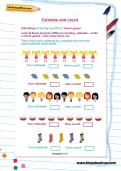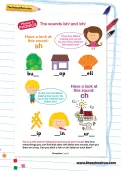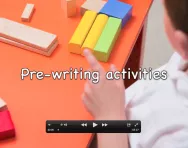Important update from TheSchoolRun
For the past 13 years, TheSchoolRun has been run by a small team of mums working from home, dedicated to providing quality educational resources to primary school parents. Unfortunately, rising supplier costs and falling revenue have made it impossible for us to continue operating, and we’ve had to make the difficult decision to close. The good news: We’ve arranged for another educational provider to take over many of our resources. These will be hosted on a new portal, where the content will be updated and expanded to support your child’s learning.
What this means for subscribers:
- Your subscription is still active, and for now, you can keep using the website as normal — just log in with your usual details to access all our articles and resources*.
- In a few months, all resources will move to the new portal. You’ll continue to have access there until your subscription ends. We’ll send you full details nearer the time.
- As a thank you for your support, we’ll also be sending you 16 primary school eBooks (worth £108.84) to download and keep.
A few changes to be aware of:
- The Learning Journey weekly email has ended, but your child’s plan will still be updated on your dashboard each Monday. Just log in to see the recommended worksheets.
- The 11+ weekly emails have now ended. We sent you all the remaining emails in the series at the end of March — please check your inbox (and spam folder) if you haven’t seen them. You can also follow the full programme here: 11+ Learning Journey.
If you have any questions, please contact us at [email protected]. Thank you for being part of our journey it’s been a privilege to support your family’s learning.
*If you need to reset your password, it will still work as usual. Please check your spam folder if the reset email doesn’t appear in your inbox.
How your Reception child develops

Starting school is a major milestone for every child. For some, it’s an exciting time, full of new friends and new experiences. For others, it can be a daunting first solo step into the big wide world. “You can help by giving your child as much information as you can about the rough structure of their school day, and by listening and responding to any fears and anxieties,” says chartered educational psychologist and educational adviser Susan Brooks.
What’s going on in there?
At age four to five, your child experiences an explosion in language-learning. They are fascinated by new and big words, and speak ever more clearly and accurately. Your child is likely to be full of questions, although they may still give one-word answers when someone asks them a question.
With the toddler stage now firmly behind them, this may be a relatively compliant age for your child. They thrive on praise and approval, and (usually) want to make grown-ups happy. They’re mastering the art of playing nicely with other children, with fewer tussles and tears than during the toddler days.
Your child’s fine motor skills are developing. They’re likely to be mastering some control of pencils and scissors, which makes for improvements in drawings and model-making. They’re more independent in looking after themselves, and can now get dressed, use the loo and brush their teeth on their own. But they’re also a good judge of what they can and can’t do, and will still rely on you, or another adult, to help when things are difficult.


Start the Reception Learning Programme today!
- Weekly maths & English worksheets direct to your inbox
- Follows the National Curriculum
- Keeps your child's learning on track
Potential pressure points
The Reception year is a time of big adjustments for your child. They have to:
- get used to being away from Mummy and Daddy during the school day.
- cope with the tiredness that comes with being at school.
- learn to follow classroom rules and boundaries.
- be ever more independent with dressing, eating and personal hygiene.
- adapt to taking turns and not having constant adult attention.
- make new friends, or get used to sharing the friends they made at pre-school with other children in their new class.
Warning signs to watch for
Despite your child’s burgeoning language skills, they may still struggle to articulate their feelings, so it’s important to be aware of the signs that could indicate that they’re feeling stressed. These include:
- Being either noisy and overactive or quiet and withdrawn: both signs of tiredness.
- Tearfulness.
- Bedwetting or night terrors.
- Not wanting to go to school, or being upset at being left.
- Being angry or argumentative at home.
“At this stage, it’s crucial to talk to your child’s teacher if you have any concerns,” says chartered educational psychologist Julia Busch Hansen. “If you can give the teacher some insight into how your child ticks, you can both help them manage the transition of starting school.”
Find out what your child will be learning at school in the Reception year, and get tips and information about settling into primary school life.








